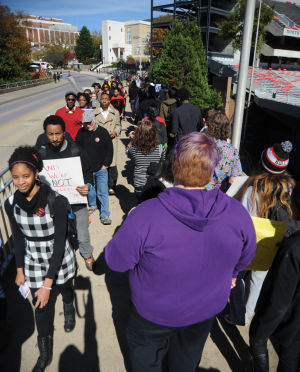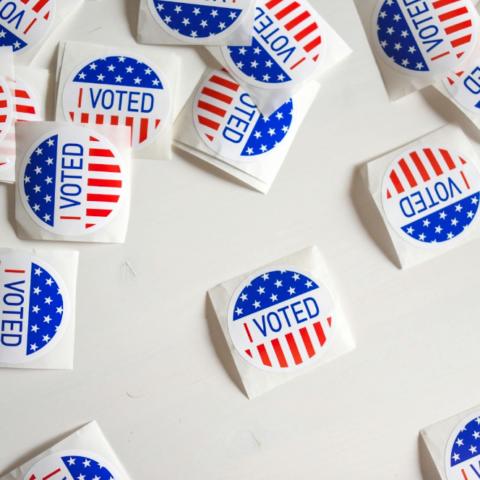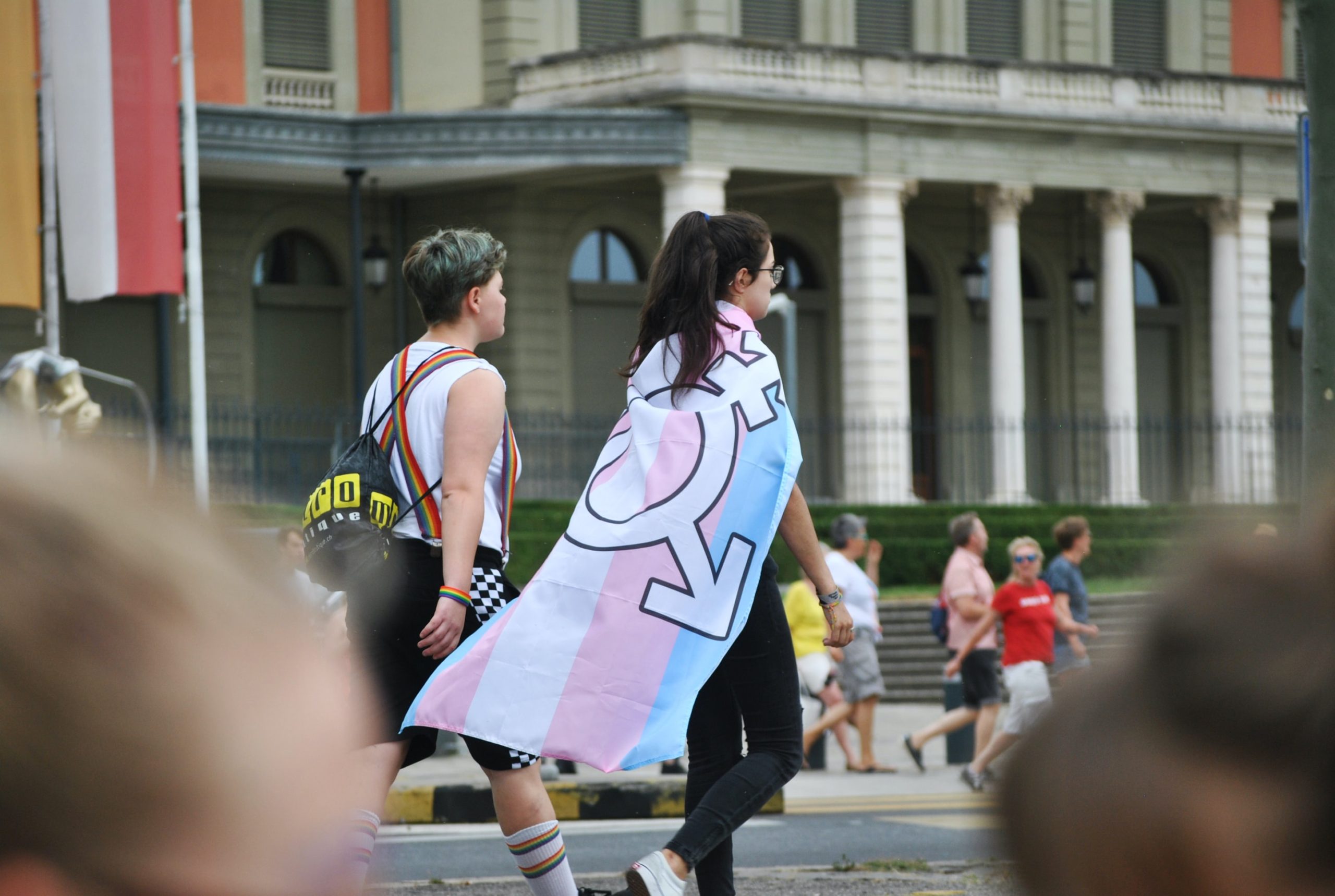
By: Uzma Chowdhury
“Usually we walk around constantly believing ourselves. “I’m okay” we say. “I’m alright”. But sometimes the truth arrives on you and you can’t get it off. That’s when you realize that sometimes it isn’t even an answer—it’s a question. Even now, I wonder how much of my life is convinced.” –Markus Zusak, The Book Thief.
Last week, in San Francisco, a 16-year-old boy was charged with hate crime after he set fire to the skirt of a gender-identity activist while the victim was asleep on a bus in Oakland. Last week, a white supremacist was sentenced to 15 years for stabbing two black men a year ago. Last week, Home Depot tweeted a racist photo comparing African American males to a man in a gorilla costume. Last week, a man in Nebraska attacked his own sister with a crowbar and threatened to kill her because she announced her relationship with a female.
Also, last week, posts were left on Facebook targeting the UGA Black Affairs Council (BAC) andthe UGA LGBT Resource Center (LGBTRC). The post on the BAC page read “Why can’t you dumb dirty [racial slur] stop stinking up the place? Let UGA be RIGHT for good WHITE Christian students.” On the LGBTRC page, the post read “burn in hell fagets.” The problem with Facebook posts is that they can be easily dismissed—that’s the double-edged sword of cyber-interaction in our generation. However, these micro-aggressions represent a macro-culture.
Jon Hurst, the director of the LGBT Resource Center said, “The bigger issue is that this is one isolated incident with one student, but this is part of a larger narrative. You can dismiss this easily, but there are a lot of things happening everywhere that are not being noticed. The narrative is already here. It’s not about this one thing. We shouldn’t want a culture at UGA that says these kinds of things are acceptable.”
Indeed, in an official response from the University, Vice President for Student Affairs, Victor Wilson, said, “We acknowledge that this act is a symptom of a larger issue that we must seek to address in a way that brings us closer to a more socially just world. Together, we cultivate the environment we want to see by standing up and interrupting acts of hate and discrimination.”
Jon Hurst asks, “Why would you want your institution to be viewed that way? I thought this was about the Bulldawg Nation, I thought this was about UGA.” What does it mean to be a member of the Bulldawg Nation, though? Does it mean only that we come together to watch our team win, or that we will all walk under the Arch as we graduate, that we ring the Chapel Bell and do the things and that’s all? I hope not. I hope it means more. I hope it means that we can get behind something more than football. I hope it means we can get behind each other. During the march hosted in response to these posts, Caitlin Cameron, a junior said, “If you’re a student at UGA, this is your problem because UGA represents you and you represent UGA.” At the end of the day, the Bell, the hedges, the Arch, all of those things are just symbols of what it does—or should—mean to be a dawg. Vice President Wilson calls for us to come together, to stand up, to interrupt these acts, and in his call, he reminds us of what it truly means to be a part of the Bulldawg Nation.
You have to work hard to make connections, to understand the intersectionality of marginalized groups—if you belong to one, then you belong to all of them. If you don’t feel as though you belong to any, then you must work harder. Look at your friend group and make sure your friends don’t all look and act and think and spend and live like you; you have to challenge your own beliefs. You have to be honest with yourself and acknowledge the assumptions you might hold about people based on their race, class, sex, sexuality, social status, or any other demographic characteristics. You have to check yourself and your words and your actions, and perhaps, most importantly you have to stand up and engage in positive dialogue to increase awareness. “Small things matter…it’s a slow process but each small piece does help. In numbers we can create change,” said Josh Fletcher of the LGBTRC. As the Bulldawg nation, we can create change.
Jon and Josh offer us the idea that we must use our contexts and our privilege to make change. Josh says, “Take control of the contexts you have control over and empower those around you.” Jon continues, “There are supporters who do not act and that’s the problem. Allies have to do more. Speak out about being an ally.” A UGA senior, Caroline Bailey of the Black Affairs Council, used her context as a student leader when she organized a march in response to these posts that took place last Friday at noon. She kicked off the march in front of Memorial Hall announcing, “This is about culture, not Facebook posts.” Campus groups and individuals came together in solidarity to fight discriminatory behaviors against all marginalized groups. Yami Rodriguez, representing the Undocumented Student Alliance said to the crowd, “When one person’s rights are taken away, all of our rights are taken away. The BAC, the LGBTRC, the Undocumented Student Alliance, and several other campus groups and individuals marched for an hour, back and forth, in front of the stadium, chanting “No justice, no peace,” “Down, down with segregation, up, up with education,” and “We are here to stay.”
“Not saying anything is the oppression,” said Elizabeth Kincaid, a student at the march. Her words are reminiscent of an Edmund Burke quote: “All that is necessary for the triumph of evil is that good people do nothing.” It is not enough to be complacent. If you reach out and if you ask; if you make it a point to stop and ask about the march happening on Sanford Drive instead of rushing, face down, eyes lowered, to class; if you use your privilege and your context; if you raise your voice for those who have no voice; if you look up to people others look down on; if you realize that we’re not so different after all; if you make it a point to think, at the very least, to think about this world we live in and what that means, then you have already done something.
There has been a lot said about these Facebook posts this past week, but most importantly we should understand that despite the Equal Opportunity Office, despite the UGA police, despite the “delete” function, despite the First Amendment, despite the process, that hate speech’s existence means validation for a larger culture, for something far more deep-rooted, and something we have got to fight and to keep fighting. It’s not gone, it’s not over. Whether or not we, personally, have to deal with such speech, whether we belong to a marginalized group or the dominant culture, whether we have privilege or don’t, this exists. We’re okay, we say, we’re alright, but the truth arrives every day and I have to wonder how much, as Zusak says, of my own privileged perspective of society is convinced. At the end of the day, it’s not about Facebook posts at all.
It’s about the boy in San Francisco, the brother in Nebraska, the student in Athens—it’s all the same mess, isn’t it? The distinctions become nebulous, the incidents seem isolated, but one thing is for certain:
We’ve still got work to do.

